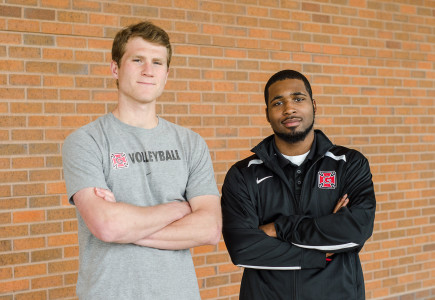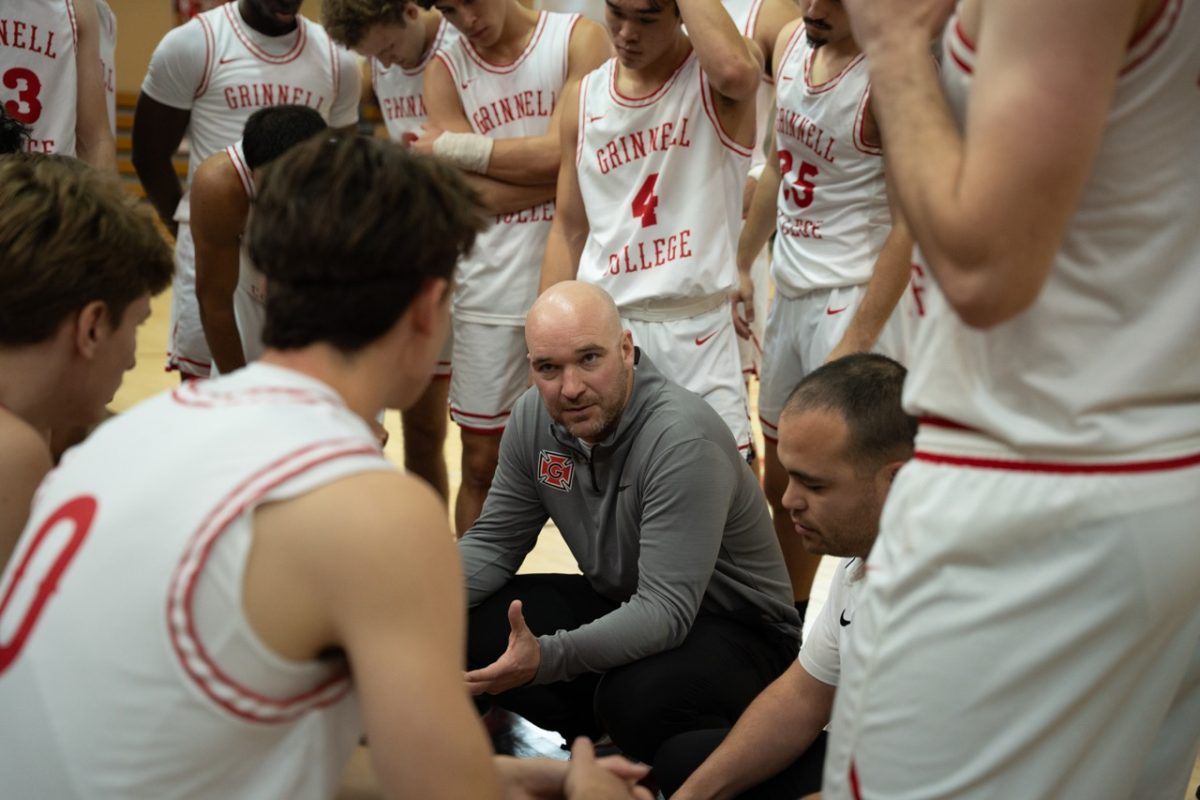By Sam Curry
currysam@grinnell.edu

Grinnell students have a wide range of relationships with athletics, from athletes who spend hours a day preparing their bodies and minds for the thrill of competition to sports fans who do homework in sorrow after their team suffers a devastating loss. Located somewhere in the middle are Grinnell’s student sports managers who help teams practice and prepare for games, but do not play themselves. These students have a variety of reasons for taking on the job. Some, such as Jermaine Marks ’17, saw managing as a way to stay involved in sports even after their playing days came to an end.
“At first, it was not wanting to let go of the game, for the love of the sport,” Marks said. “Sports had been a good portion of my high school career, it was hard to think that once I came to college it was just going to be gone.”
Not all student managers are currently non-athletes. Men’s tennis team captain and volleyball manager Tracy Johnson’s ’16 experience shows that managerial roles can arise through a combination of happy coincidence and an interest in continuing secondary athletic interests.
“My tutorial professor was Paul Hutchison [Education] … the husband of the volleyball coach Jackie Hutchison, and the [previous] manager had just graduated, and she was basically telling him to look about for anyone that might be able to do it,” Johnson said. “I played high school volleyball, so that must have come up in tutorial.”
Blake Creasey’s ’16 position as a manager of the baseball team also resulted from connections early in his Grinnell career. Creasey’s first year Student Advisor was a baseball player, and the baseball team shared his hobbies of lifting weights and watching football in Norris Lounge on Sunday afternoons. Despite their common interests, and because Creasey had never played baseball, he had to prove himself through his lifting acumen.
“We went out there to train one day and we had a truck pull so we hook up Eli’s [Freese ’14] pickup truck to a harness and then we would pull ourselves,” Creasy said. “We all walked into the dining hall afterwards … and I had dirt everywhere and I was wearing a cutoff, and they were like, ‘OK, this kid might be able to hang with us,’” Creasey said.
The responsibilities of these student managers mostly revolve around filming games and practices, editing this film and helping out during games. However, they sometimes reach beyond the boundaries of the job title to help the players in times of need.
“It’s not in the job description, but I help rebound if they don’t have someone, “ said Ian Windham ’16, manager of the women’s basketball team. “During games all I do is film, it’s a pretty simple job.”
Johnson also sometimes takes an active role in the team’s practice and makes it easier for players to focus on the game.
“I facilitate the drills that they run, which means entering balls into rallies, helping shag balls and just doing various errands for the coach,” Johnson said.
The volleyball team has rewarded Johnson well for his service, with gifts evocative of his history with the team.
“They made me a pillow,” Johnson said. “The cover was stitched together from five or six retro Grinnell volleyball shirts.”
Despite the monetary and material perks, all of the student managers emphasize how much they value the close friendships that they have developed with players that they would not have had otherwise.
“[The job] synchronized my meal time with theirs, and, since I’m friends with all of them, it’s nice to be able to hang out with them,” Windham said.
Marks agreed that the social connections from the manager role made him feel at home at Grinnell.
“You don’t stick out,” Marks said. “You’re just one of the guys.”



















































